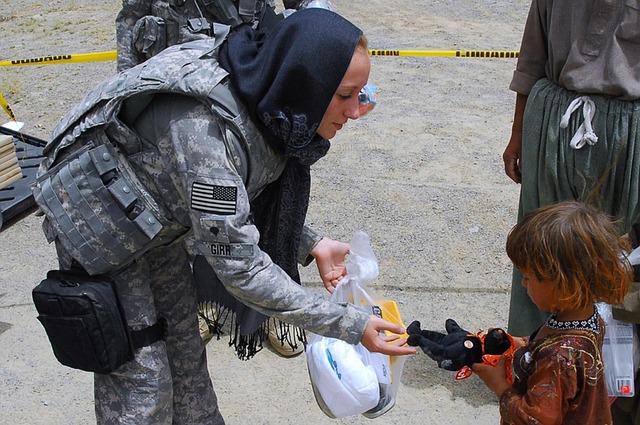In Part 1 of his book, The Five Invitations, Frank Ostaseski discusses his first invitation and principle for living, “Don’t Wait”. Frank, as founder of a hospice and end-of-life carer, has cared for more than a thousand patients during their dying process and death. In this first part of his book, he highlights the impermanence of everything and the preciousness of each moment of living.
Frank has been a companion to the deepest grief of friends and relatives of the dying and experienced a depth of vicarious grief that is difficult to conceive – it’s as if the collective grief of others had beset him and brought him to his knees, both physically and metaphorically. Fortuitously, he was a colleague and friend of Elizabeth Kübler-Ross at the time who supported him in his grief and his work as an end-of-life carer. Elizabeth developed the classic concept of the five stages of dealing with death and loss in her book On Death and Dying and was also the author of Grief and Grieving: Finding the Meaning of Grief Through the Five Stages of Loss.
The impermanence of everything
If nothing else, the Coronavirus reinforces the impermanence of everything through its pervasive impact on every facet of our daily lives – our home, work location, transportation, schooling and education, shopping, spending, entertainment, health, finances, sport and our very daily interactions and movements. The on-off nature and varying intensity of imposed restrictions serve to reinforce this message of the changeability of everything. In these challenging times, we are called to adapt to the unpredictability of our work, our changing home arrangements, the extreme challenge to our health and welfare, and the uncertainty of our income and overall finances.
Without the pandemic, we can still become aware of impermanence – the birth and death cycle for humans, animals and nature. Relationships end, animals are killed and eaten by other animals in the endless pursuit of food and survival and leaves fall off trees to become life-giving compost for new plant growth.
The impermanence of everything was brought home to me by two recent incidents. The first was the disturbing story of a nurse killed suddenly in our city while cycling to work. Her husband indicated that their day started as normal with a coffee and breakfast together but ended tragically when the nurse was only metres away from her work at the hospital.
The second experience of impermanence occurred when I was walking along the foreshore of Moreton Bay near our home. I was watching the small fish full of life darting back and forth in the marina when a fast-moving bird dived into the water and retrieved one of the fish for its food – only to be followed by other birds dive-bombing the school of little fish.
The preciousness of life
Frank describes the process of dying as a “stripping away” of everything including our sense of “self” – our sense of who we think we are and should be, all our roles such as husband/wife, partner, parent, neighbour. We lose our professional identity, our personal orientation, e.g. as a “people person” and our comparative self-assessment such as well-off or impoverished and successful or an abject failure. Frank reinforces his view of the inadequacy of the medical model to explain the breadth and depth of the “stripping away” at death. He maintains that in dying everything is released/dissolved – “the gross physical elements of the body, thoughts, perceptions, feelings, conditioning all dissolving”. Frank asserts that what is left to discover is “something more elemental and connective” that constitutes the real essence of human nature.
Our awareness of impermanence, accentuated by illness, can lead to anxiety or a readiness to appreciate and savour the preciousness of life, of our relationships and of nature. Through appreciating the pervasiveness of impermanence, we can more readily accept change and more willingly give up our attachments – the things that we hold onto to define our self and our worth. This is where meditation can help us both in fully living and preparing for dying and death.
The “Don’t Wait” principle reminds us of the certainty of death and the uncertainty of the timing of our death – that it will happen, but we don’t know when or how. This principle encourages us to value every moment we are alive and to savour what we have in life and the experiences of living. Frank’s heart attack reinforced this message for him – his sense of self and perception of himself as the “strong one” helping everyone else in need was completely undone. He encourages us to be curious about ourselves and our preferences/attitudes/ biases and to work at letting go of the identities that we have become attached to.
Frank maintains that “softening around these identities, we will feel less constraint, more immediacy and presence”. I am learning the profound truth of this statement through softening my identification with being a “good” tennis player who never or rarely makes mistakes. Instead of wallowing in negative self-evaluation, I am beginning to enjoy the freedom of progressively loosening this unsustainable identification as I grow older and less physically able.
Reflection
Frank’s book would have to be the easiest and most-engrossing personal development book I have had the privilege to read, and, at the same time, the most profound. As someone who has had a deep interest in, and knowledge of, his subject, he can communicate his ideas in simple language and practical illustrations. Each paragraph contains exquisite morsels of wisdom and the book is replete with moving but brief stories that impress indelibly – so, even if you don’t remember the exact wording of his principles, you certainly remember the stories that illustrate them. Frank’s writing reflects the calmness, humility and depth of insight and wisdom that is evident in his many conversations and podcast interviews about the process of dying and “The Five Invitations”.
“Don’t Wait” is a challenging principle but Coronavirus has forced us to stop, reassess and protect ourselves and others. It has been the catalyst for incredible acts of courage and kindness – by our health professionals and people from all walks of life. The Pandemic Kindness group on Facebook©, with over half a million members, is but one of many efforts to encourage and support random acts of kindness in these challenging times.
The “Don’t Wait” principle incorporates many invitations to create change in our lives. As we grow in mindfulness through meditation and reflection, we can become increasingly aware of our attachments (including to harmful self-narratives) and progressively develop the discipline and self-regulation to create real change in our lives to live with more appreciation, thoughtfulness, kindness and compassion. We can learn to savour every moment of our life and everything that it entails.
__________________________________________
Image by christels from Pixabay
By Ron Passfield – Copyright (Creative Commons license, Attribution–Non Commercial–No Derivatives)
Disclosure: If you purchase a product through this site, I may earn a commission which will help to pay for the site, the associated Meetup group and the resources to support the blog.


